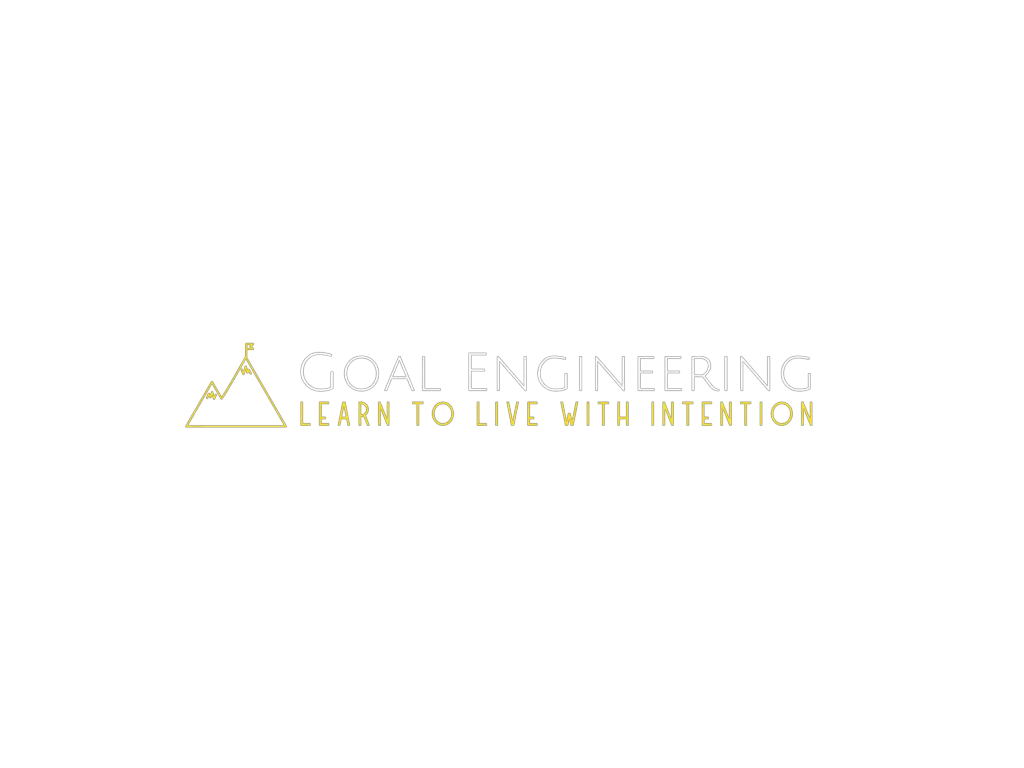I really like to plan. Sometimes, though, I over plan and get caught up in overthinking, which keeps me from working my plans and reaching my goals. Whether you enjoy planning or hate it, it’s good to know how often you should plan so you can balance being strategic with following through with your goals!
To reach your goals, be more mindful, improve your productivity, manage your stress, set yourself up for a bright future, and boost your happiness, here’s how often you should plan:
- Once every day, week, quarter, and year.
- Anytime setbacks get your plans off track.
- Whenever you experience a big change.
There are a lot of benefits to planning in these time chunks, so let’s get into the details of each of them!
Plan Once a Day, Week, Quarter, and Year
“A goal without a plan is just a wish.”
– Antoine de Saint-Exupéry
There are a lot of reasons why I plan. The main reason is that I enjoy it. But the benefits go much deeper than that. It sets me up for success in every area of life, for one. When we have plans, which are simply a clear path to reaching our goals, we’re far more likely to actually reach our dreams.
I’m still finding new reasons to plan often that I hadn’t even thought about before. I just discovered, for instance, that planning helps you manage stress, which can make you happier.
Research indicates that a quarter of your overall happiness comes from how you handle stress, and planning is one of the best ways, if not the best way, to healthily manage stress. According to survey data, the most effective stress management technique people use is planning.
The reason planning is such a powerful de-stressor is because it makes you proactive instead of reactive. It’s the shortcut to placing your locus of control within yourself instead of others.
Planning gets you out of the victim mentality when things go wrong. Instead, it puts you into action mode, which is ultimately the only way to deal with something that’s causing you stress.
How to Plan Daily, Weekly, Quarterly, and Yearly
The details of each planning session may be different, depending on when you’re doing it. Most often, though, you’ll want to start by reviewing at the past to see what you can learn. Then, you look to the future to see where you want to be and how to get there from where you are now.
To accomplish your goals and reap the other benefits of planning, you should focus on just a few questions:
- How have I been doing recently? You can ask this about a day, week, quarter, or year, just replace “recently” whatever time period you’re looking at.
- Are my goals still what I want to accomplish or do I need to change them?
- Where do I want to be spiritually, socially, financially, and physically by the next [insert one: day, week, quarter, or year]?
- Are my efforts leading me toward my goals?
- What action steps can I plan on doing the next [insert one: day, week, quarter, or year] that will accomplish my goals?
How long your planning session is will depend on when you’re doing it. I don’t usually use more than about 5 minutes for a daily planning session, for instance, while my yearly planning goes a lot longer. I try to stick to the rule of 5’s for how long to plan:
- Your daily plan should only need about 5 minutes to create.
- Weekly planning might take around 50 minutes.
- Quarterly planning can require 5 hours, spaced over a few days.
- Yearly planning takes 5 days or more, with most of the time spent on thinking while relaxing. I usually do this in December while I’m taking a break during the holidays, and I take plenty of time to strategize.
When doing quarterly and yearly planning, I spend 90% of my time thinking about the answer to this question from Gary Keller’s book The ONE Thing:
“What’s the One Thing I can do, such that by doing it, everything else will be easier or unnecessary?”
I ask myself this for all four areas of life, including spiritual, social, financial, and physical. That’s why these bigger planning sessions take so long. I’m not actually sitting down writing anything for most of that time. Usually, it’s just sitting and thinking, or writing that question above on my phone and going through each area of life to find the answer for that area.
Also remember that these are just suggestions based on my experience. If you can do it in less time, that’s great. If it takes you longer than this, no problem! I often deviate depending on how much planning time I feel I need to give myself. And the more I’ve done it, the better I’ve gotten at being concise, too!
Habitually planning daily, weekly, quarterly, and yearly is a great standard to have for yourself to reap the benefits of planning. But if you don’t occasionally plan more often, you can get stuck when the unexpected happens. That’s why you need to re-plan when things go wrong.
Use Planning to Get Back on Track After Setbacks
“Good fortune is what happens when opportunity meets with planning.”
– Thomas Edison
A few weeks ago I was having a really rough day. I’d made a great plan the night before and was excited to make it happen. But when it came time to work, I struggled.
It only got worse, too. It seemed that every little thing that got in my way kept reminding me of how I’d failed to start early, didn’t get my writing done on time, or whatever other little thing I’d messed up. The downward spiral was awful. Maybe you know what that feels like. Either way, it’s no fun, and it really makes it hard to be productive.
I got more than halfway through my day before I realized I was overthinking everything. I just needed to make a new plan and I could still have a great day.
My daily plan is on a note on my phone, so I opened that up and took just a couple of minutes to jot down what I wanted to accomplish the rest of the day.
And it worked! Making a clear pathway to a successful day cleared all of my frustrations. I got going and accomplished more than I thought I would. All because I simply decided to re-plan my day when it had gotten off track.
Without realizing it at the time, I was proving to myself what I mentioned earlier about planning being the perfect stress-management tool. And I can see now how much happier it made me to healthily manage that stress, too!
How to Re-Plan When Things Get Off Track
My experience shows how you can utilize re-planning on a daily basis, but it works for a week or quarter or even a year, too. 2020 was the perfect example of that for me, but I’ll get to that in a moment.
For daily re-planning, it’s fairly simple, as you’ve already seen from my experience. You just make a mental note that you’re off track, get your original plan in front of you, and make a new one for the time you have left in the day.
This is where mindfulness really helps, too. All this means is regularly checking in with yourself to see how your plan is going. I’ve been doing this recently with my emotions and I highly recommend it. I’m getting better at regulating my feelings and handling difficult ones with maturity. You can get the same benefits if you try it with your productivity, as well.
Weekly, quarterly, and yearly re-planning can be just as simple, but it might take a little longer. Whichever time period you need to re-plan, follow these general steps:
- Review what you had originally wanted to accomplish.
- Be honest with yourself about how much time you have left.
- Eliminate what you can no longer accomplish and re-adjust your expectations to do what you can with the time you have.
- Make a new plan to accomplish what you can.
It’s crucial that you don’t go too crazy with your new plan. Most likely, whatever derailed your original plan took some energy and willpower to deal with. And since your energy levels decrease throughout each day, week, quarter, and year, you won’t have as much energy as you did at the beginning.
This is where the power of gratitude is a lifesaver. When you get to the end of a day, week, quarter, or year that needed some re-planning, don’t look at what’s undone when planning the next time period. Just be thankful for what you accomplished with the limitations you had.
Make a New Plan After A Big Life Event
“The trouble with many plans is that they are based on the way things are now. To be successful, your personal plan must focus on what you want, not what you have.”
– Nido Qubein
When 2020 began, I was full of exciting hopes and dreams, just like most people. I was working my plans to achieve those big goals, and then the Coronavirus pandemic interrupted many of them.
I got to see recently how it all impacted me when I was reviewing an old weekly planning session I’d had the week that everything shut down. For my wins of the week, I simply wrote “I made it.”
Normally, I’m the kind of person that will shrug these things off and just get to work. But that week we also found out that our unborn baby had a cleft lip. And we experienced an earthquake in our area. And I was in graduate school and working full time for myself.
Then things started to get even messier. I lost income from losing my biggest client. Our baby was born early and spent two weeks in the NICU. I still had to finish graduate school and work during all of this. Eventually, things started to look up when we miraculously got to buy our neighbor’s house, but even that took a lot of energy that I didn’t really have.
And the week after we moved, our little boy had surgery to fix his cleft lip.
That surgery went really well by the way and our boy is doing great. Things are finally settling down now in 2021, thankfully. I also know that a lot more people suffered way more than me and don’t mean to undermine that in any way. My point is to explain the importance of rethinking your plans when life changes.
Throughout all of 2020, it felt like I was behind on my goals and plans. I tried re-planning multiple times, and it worked for a while, then something else would derail me. It wasn’t easy dealing with depression most of the time, too.
As I come out of all this, I’m starting to see that my goals and vision for my life are a little different than I had originally planned.
Big events in life, whether good or bad, have an interesting power to refocus you on what is most important. For me, I’ve turned more to my spirituality and family and am working on simplifying my work so I can enjoy life more.
There’s no way to tell what will come in the future. But you can plan ahead, and develop the habit of making new plans when setbacks come up. And, even more importantly, re-planning when the craziness of life helps you remember what’s most important.
There’s no real big how-to for this. I’m still figuring it out myself, to be honest. But I’m still focusing on that question I mentioned earlier from The ONE Thing to help me hone in on what will have the biggest impact.
Conclusion
If you plan, you will manage your stress better and you will be happier. You’ll improve your productivity, brainpower, time management skills, and most importantly, your ability to accomplish your goals. And that’s just the tip of the iceberg.
To take full advantage of all these benefits, you need to plan often, including daily, weekly, quarterly, and yearly. You also must plan when your original plan gets off track and when major life events help you see what’s really important.
I’ve been setting goals and making plans for over 15 years. Although I’m far from perfect at it, I’ve seen all of these benefits from doing it, and I’m confident that by planning frequently, you will see them too.





